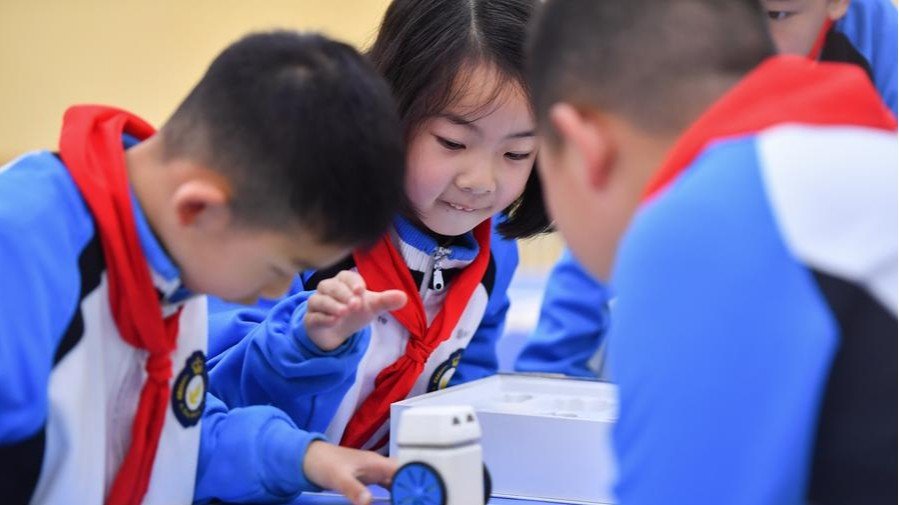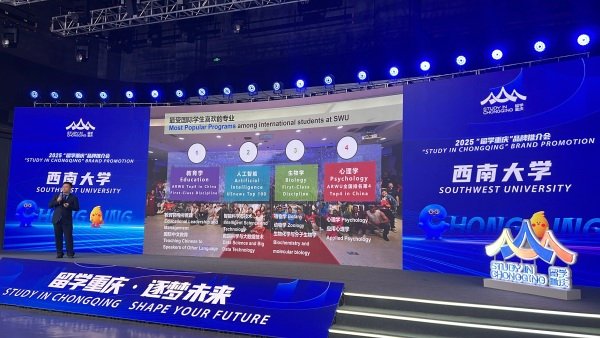In a step that signals deepening global ties and educational ambition, the municipality of Chongqing has announced notable progress in its drive to expand international education cooperation and to elevate the quality of its education system. At a press briefing on 20 October, officials revealed that during the current five-year period of their 14th Five-Year Plan (2021-2025), the city has not only met but exceeded its twelve core educational targets.
For Nigeria, where the demand for international linkages, vocational relevance and inclusive education continues to grow, this story offers important lessons. Chongqing’s leadership emphasised that education is no longer only about broad access, but about global engagement, “industry-integration”, and preparing talent for a dynamic economy.

Table of Contents
Global Cooperation and Mutual Learning
Chongqing has made a conscious turn towards opening its education system to the world and bringing the world into its classrooms. According to the municipal education commission, the city now cooperates with over 70 countries and regions, and has established 78 Sino-foreign cooperative institutions and programmes across fields as diverse as clinical medicine, robotics and computer science. Annually, these enrol over 8,000 students.
One standout example is the joint college with the University of Leicester (UK) — reported to be the only China-UK medical institution located in central and western China. On the outbound side, Chongqing’s “teaching follows industry” model has rooted vocational platforms in over 50 countries, including Russia, Spain and Thailand.
Such global outreach is underpinned by robust institutional frameworks. For instance, the Chongqing Vocational Institute of Engineering (CQVIE) has led the way in “China-Uzbekistan Workshop” projects, alliance schemes and cross-border vocational training in co-operation with enterprises such as ZTE Corporation for 5G and NEV (new energy vehicle) talent.
What this means is: Chongqing is not just importing foreign education models, but exporting its educational capacities, aligning them with industrial needs and global labour markets. For a Nigerian context: imagine how your local vocational or tertiary institution could partner with international universities or industry to build credible export-ready certification programmes.
Strengthening the Entire Education Ecosystem
The emphasis is not only on internationalisation. Chongqing has simultaneously strengthened its domestic education ecosystem in size and quality. The city now hosts 9,177 schools, serves 6.4 million students and employs more than 500,000 teachers. Even more significant, its enrolment rates surpass national averages: preschool at 93.5 %, high-school at 98.47 %, and higher education at 64.25 %.
Equity features heavily in the narrative. Preschool education now reaches 95.2 % of kindergartens; starting in 2025, one year of free preschool will apply to over 200,000 children. Special education also has major gains: 41 special schools were established, and children with disabilities enjoy a 98.99 % enrolment rate.
By embedding the “Five Educations in One” philosophy (moral, intellectual, physical, aesthetic and labour), Chongqing signals that its targets are broader than exams alone. Campus football reform, for example, has been selected among China’s first pilot programmes; Olympic champions and student heroes alike reflect the vitality of a well-rounded approach.
For Nigerian stakeholders, this underscores the point that high-quality education entails both scale and diversity — expanding access while enriching learning with holistic, modern and globally relevant elements.

Linking Education with Industry, Innovation and Talent
Perhaps most interesting for policymakers and practitioners is how Chongqing tightly links its education system to the regional economy and innovation agenda. Over the past five years, the city’s universities and vocational colleges produced 1.85 million skilled graduates. More than 70 % of new frontline workers in the region’s three major industries were trained by local vocational institutions.
In research and innovation, two universities and five disciplines entered China’s “Double First-Class Initiative”, while 83 subjects achieved global top 1 % by ESI standards. Meanwhile, universities now account for about 90 % of the region’s basic research, and over 3,300 enterprises have engaged in university-industry collaboration.
This alignment of talent-training, innovation and economic strategy is especially relevant to developing economies. When institutions of learning work closely with industry and research infrastructure, the output tends to be more relevant — skills aligned with jobs, curricula sensitive to new technologies, and students prepared for mobility.
Chongqing’s ambition is clear: to build “an open, innovative and inclusive education ecosystem” that contributes not only to local development, but to China’s modernisation and global education cooperation.
Implications & Take-aways for International Audiences
While Chongqing’s scale and context are unique, several takeaways are applicable globally and for nations such as Nigeria:
- Global orientation matters: Partnerships beyond borders — both inbound and outbound — can enhance educational quality, relevance and brand. The “Study in Chongqing” global brand now attracts over 10,000 international students.
- Balance expansion with quality: Growth in enrolment is matched by investment in quality and equity — ensuring that no child is left behind, including children with disabilities and disadvantaged groups.
- Industry-education integration: In a fast-changing technological landscape (NEVs, robotics, AI, IoT), linking education with industry ensures graduates meet actual demand — and that education drives innovation rather than lagging behind it.
- Holistic talent development: Emphasising not just academic achievement but moral, physical, aesthetic and labour education helps produce well-rounded individuals capable of adapting to globalised and evolving societies.
- Systemic collaboration: The success hinges on policy, institutional frameworks, institutional capacity, quality assurance, and continuous innovation — not simply one-off partnerships.

Conclusion
Chongqing’s journey over the past five years signals a determined effort to expand global education cooperation and achieve high-quality development. It shows that with vision, policy alignment and practical action — on access, equity, globalisation and industry-relevance — a city can chart a path toward being a modern education hub. For countries and cities around the world looking to do the same, the lesson is: global outlook and local responsiveness must go hand-in-hand.
Join Our Social Media Channels:
WhatsApp: NaijaEyes
Facebook: NaijaEyes
Twitter: NaijaEyes
Instagram: NaijaEyes
TikTok: NaijaEyes
READ THE LATEST EDUCATION NEWS




